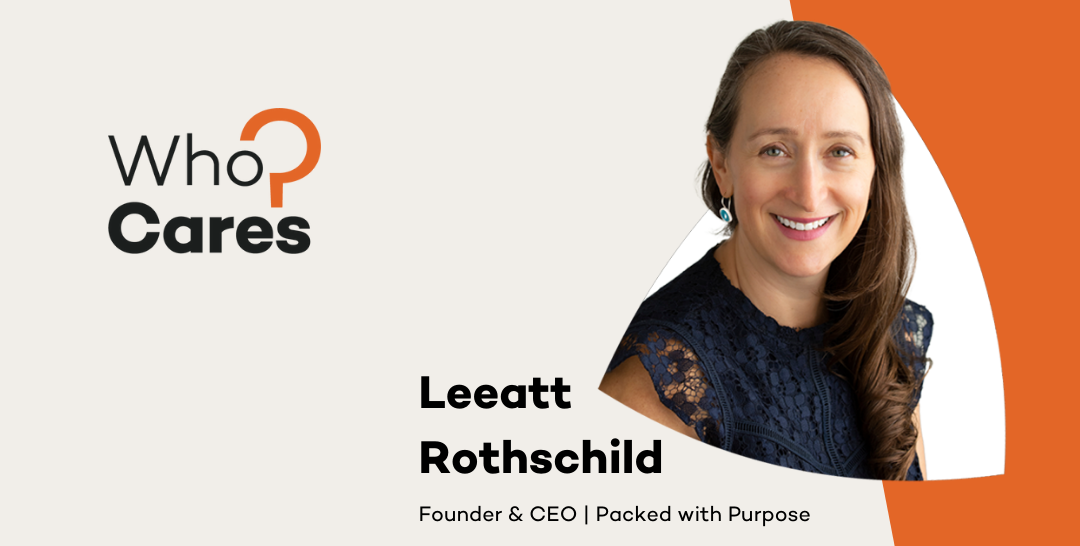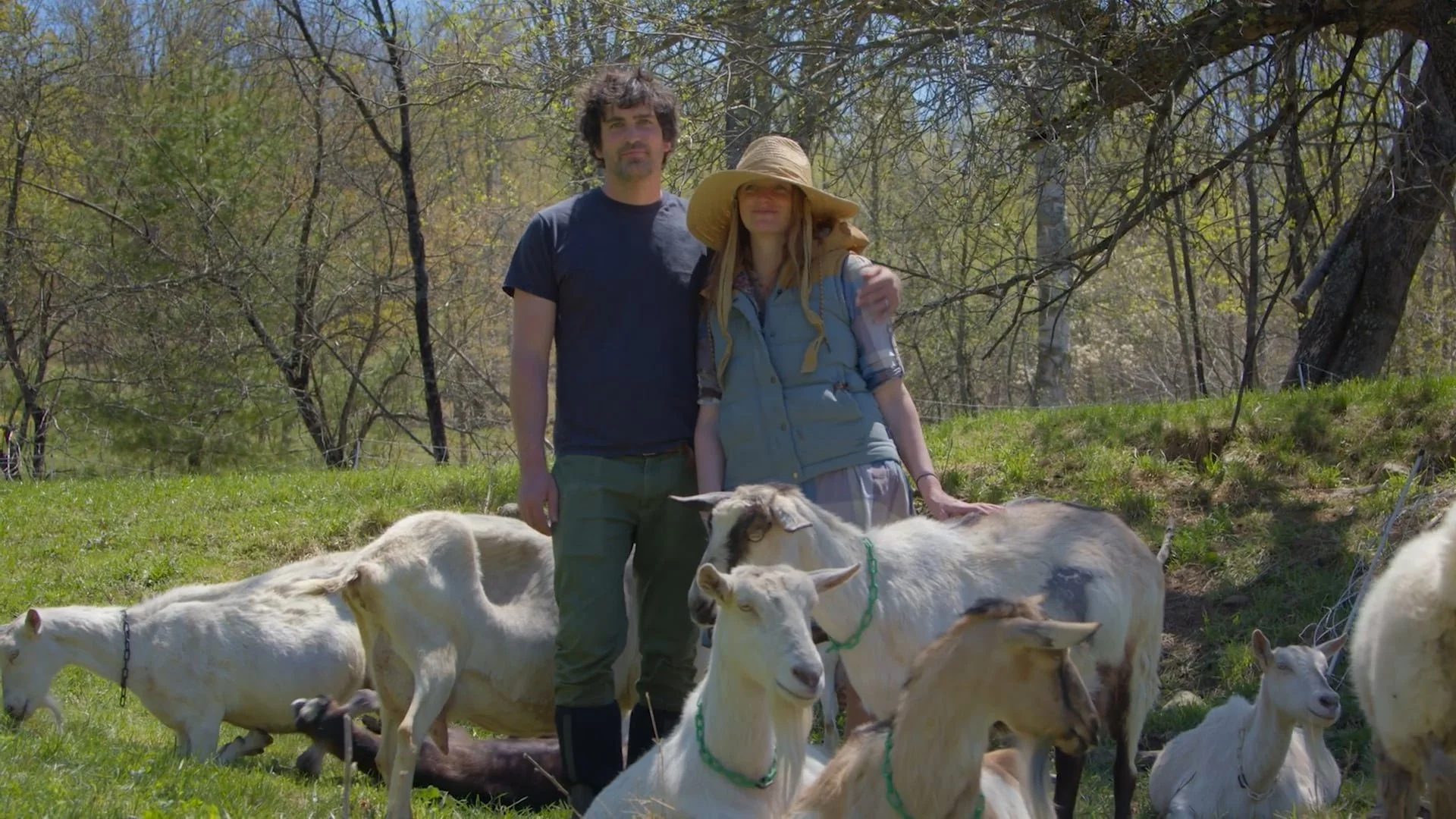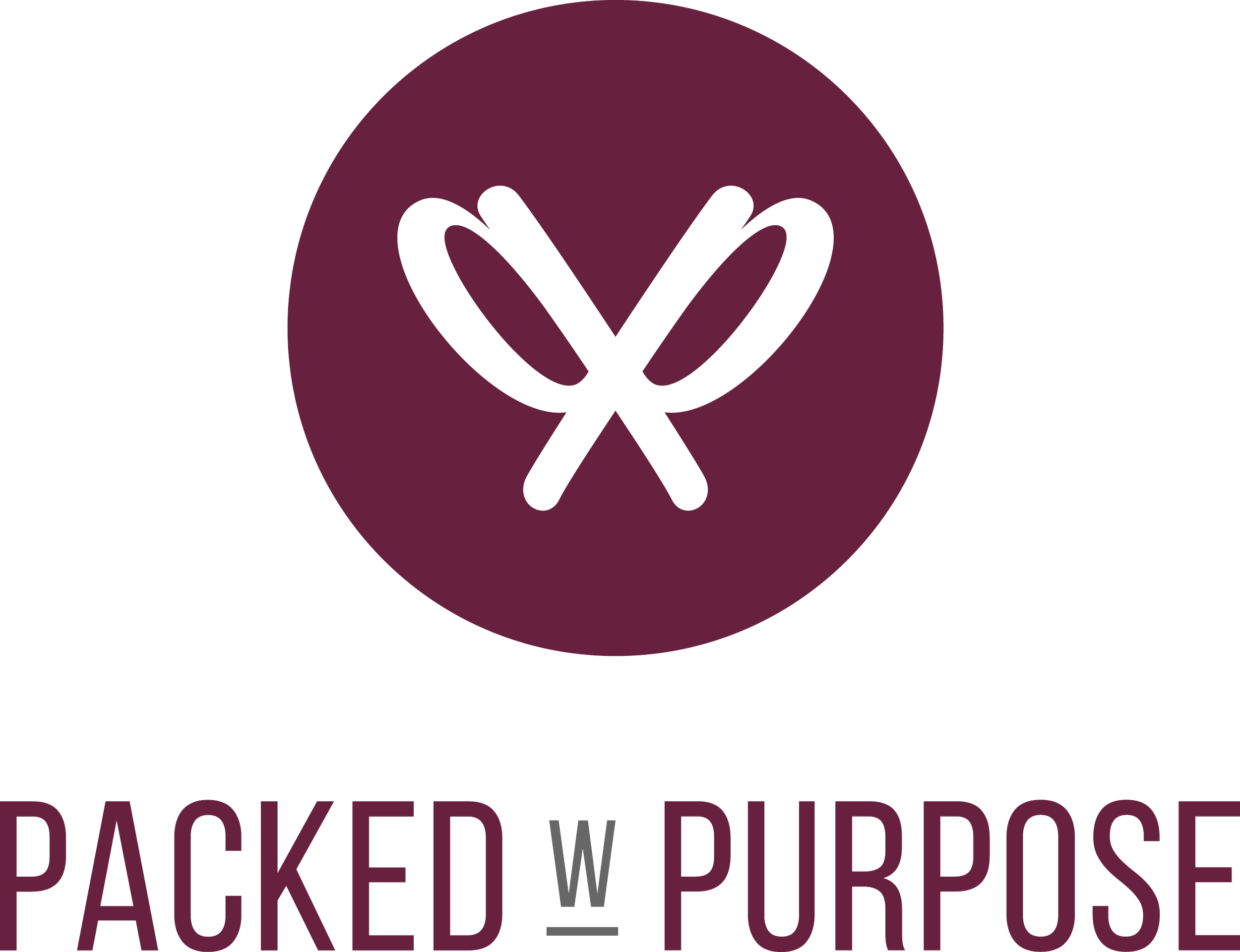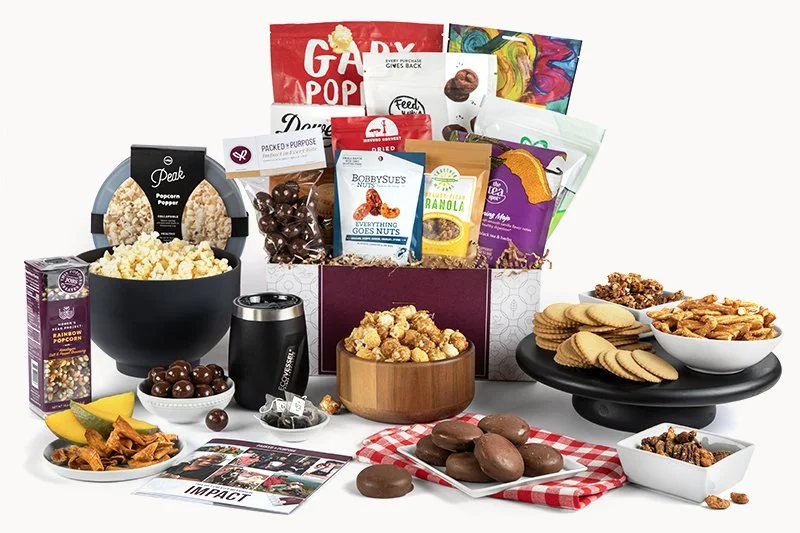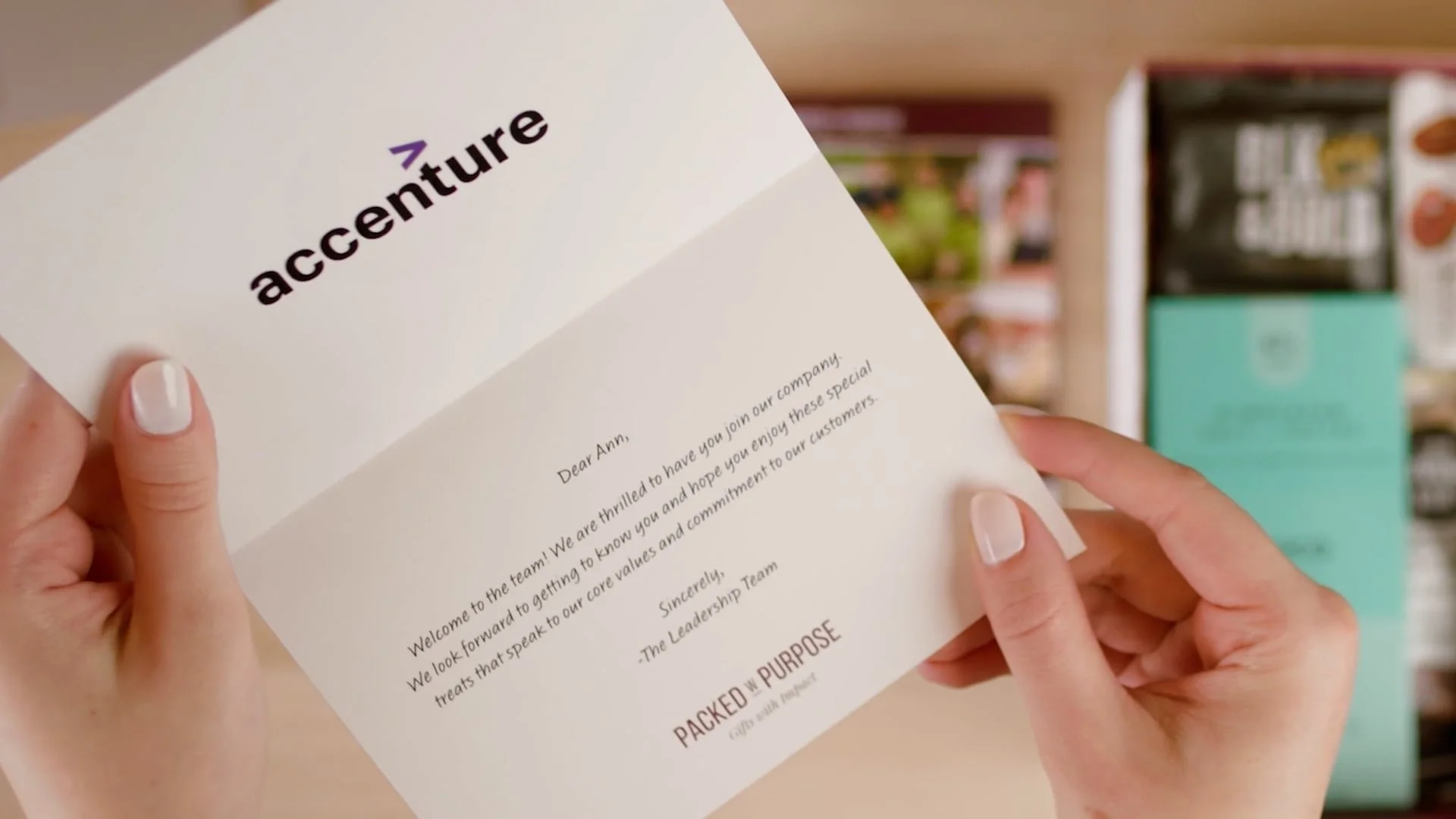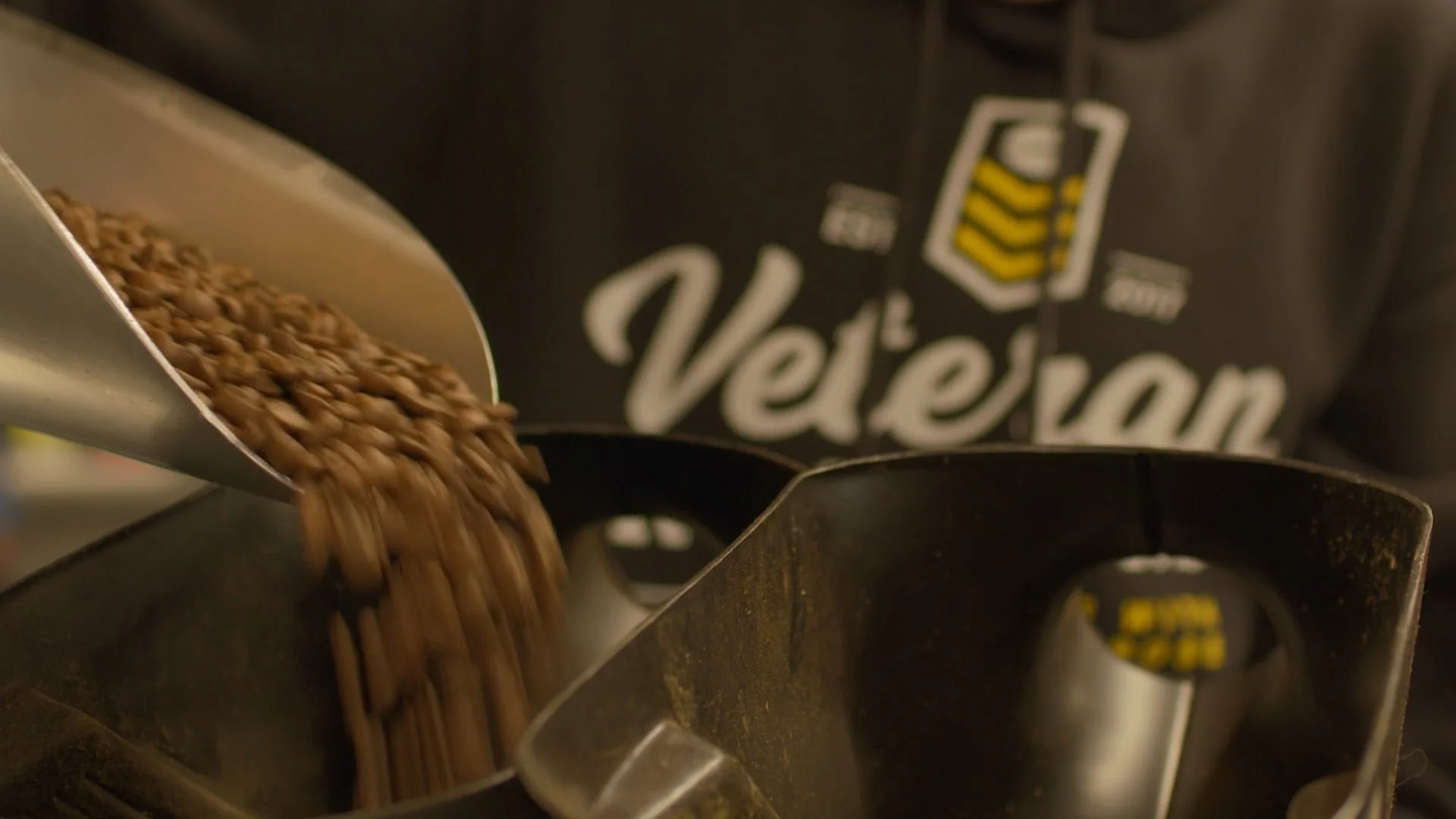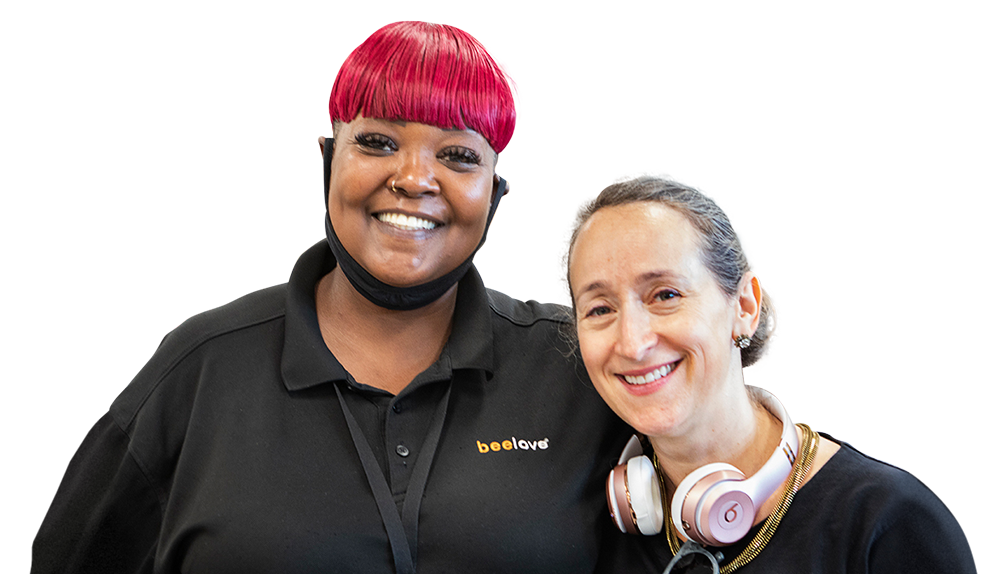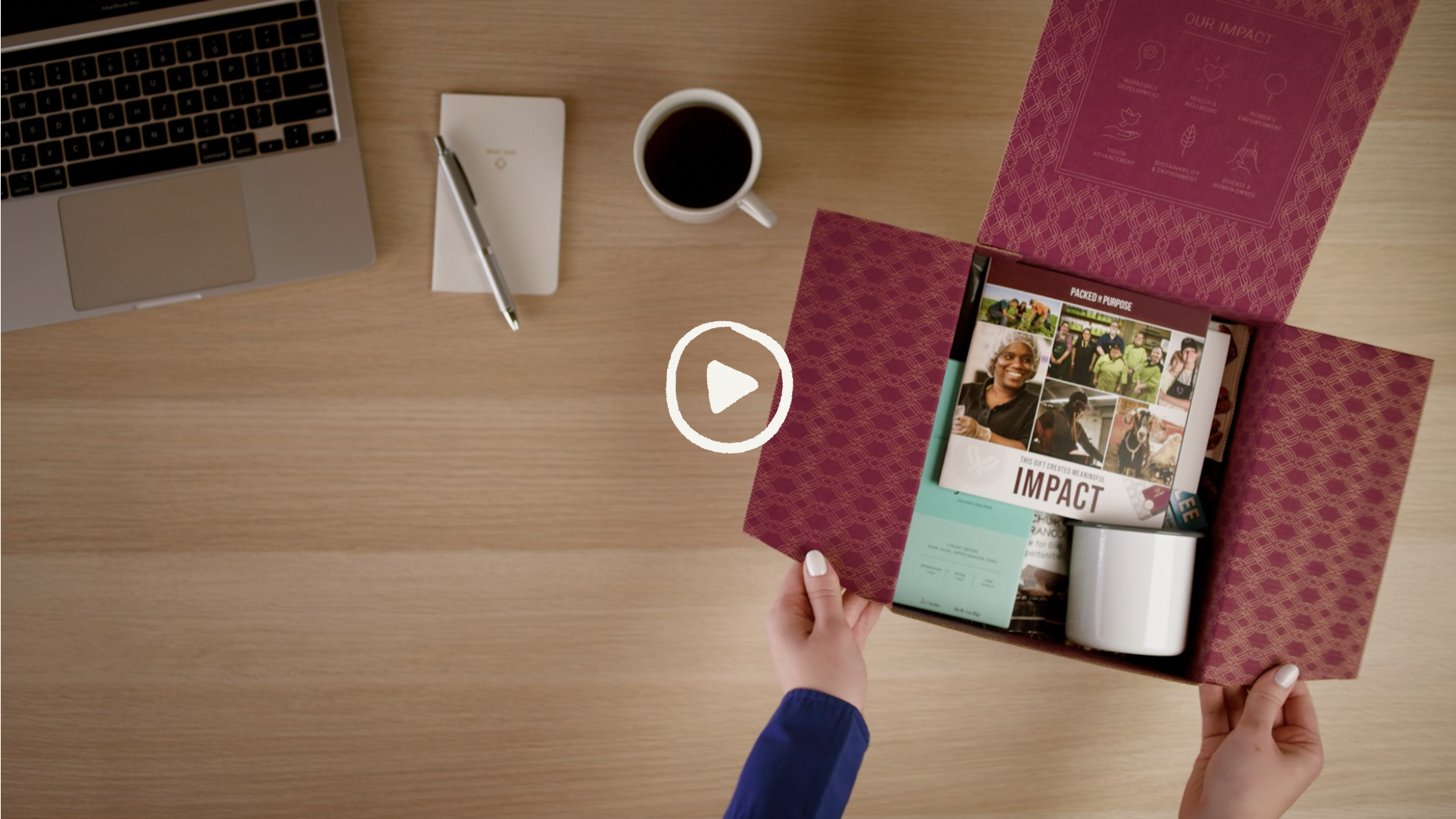Who Cares About Operating with Purpose?
We had a conversation with Leeatt Rothschild, Founder & CEO of Packed with Purpose; a gifting company that provides recipients with memorable gifts that give back. Leeatt has grown her company over the past seven years; forming partnerships with mission-driven organizations that fill each Packed with Purpose gift with a product tied to social or environmental impact.
Has there been a shift in corporate culture today with a heightened focus on purpose?
Does a purpose-driven brand activate a heightened brand awareness?
What potential do companies have in making a meaningful social and environmental impact?
p3: Were there any life experiences that had an impact on your professional endeavors?
Leeatt: So I was a Peace Corps volunteer from 2002 through the end of 2004 and The Peace Corps made perfect sense for me. It was high-intensity, high-adventure and an opportunity to do good and to give back. That experience definitely fueled my desire to use my own skills to do good in the most broad-sweeping way possible.
And my parents have always set an example, both explicitly in their statements and also just through their behaviors and their actions. It's always been clear that doing good in whatever way possible was important.
p3: Do you believe that you've seen a shift in corporate culture today with a heightened focus on purpose?
Leeatt: Yes, almost out of nowhere I think you saw a lot of companies riding the wave of what seemed like a national reckoning and a sense that this is a moment in history where as a company we need to acknowledge certain truths and support our employees and demonstrate who we are as a corporate citizen. And it happened so quickly that, for some companies, it was not outlined as a strategic imperative. And so they had to stop and look at this reflection and ask themselves: ‘Was that authentic?’ ‘Is that who we are?’ ‘What is appropriate for us?’ ‘What should we be doing?’
It is great for companies to value and appreciate their employees and to respect their clients and shareholders and the globe from which they've extracted resources, but these initiatives should also align with who they are as an organization. That’s the only way for it to be sustainable.
p3: How vast is the potential for companies to have a meaningful social and environmental impact?
Leeatt: Companies play an enormous role in driving the progress of environmental sustainability. And they're playing a role in the development of people, in providing the healthcare and the support that their employees need. They're playing a role in how we extract value and give value back to the natural resources that we use. It’s a no-brainer that companies play a role in creating a social and environmental impact because we have a social and environmental impact.
We have a social impact because we have employees and employees are part of the social fabric of our cities, states, and country. We have an environmental impact because, regardless of what type of company we are, we use natural resources.
p3: What inspired you to start Packed with Purpose?
Leeatt: Following my Peace Corps service I knew I wanted to use my innate and professional skills to do good. I was working for a consulting company that advised companies on their corporate social responsibility strategies, helping them have a financial return on the business and a positive impact on society. One day in December, I remember walking into our office and seeing dozens of traditional, corporate gift baskets and it just dawned on me: here I was, working with Fortune 1000 companies that were spending hundreds of millions of dollars to do good and the gifts they would send to their clients and employees was devoid of any kind of impact. There was a huge disconnect. People genuinely wanted to send a gift that stood out and that reflected their values and the market didn't offer that.
p3: So what is Packed with Purpose?
Leeatt: Packed with Purpose is a gifting company that provides recipients with memorable gifts that give back. We achieve this by ensuring all of the products in our gift boxes are created by organizations that ‘do good.’ All the products in our gift boxes have to meet the criteria of one of our impact areas. So they are focused on Health and Well-Being, on the Environment and Sustainability, on driving Workforce Development, on Women's Empowerment, Teen Advancement or the products are made by Women or Diverse-Owned businesses.
p3: Has this purpose-driven aspect of your brand been effective in differentiating your company?
Leeatt: Absolutely. There are hundreds of different gifting companies. There's huge national ones and then there's lots of local companies across the country. And yet there is no other corporate gifting company that has embedded ‘doing good’ in their business model like we have. People want to send gifts that’ll make an impression and have an impact. Our gifts do both. They are unique, because they give back. A Packed with Purpose gift is more than the sum of its parts.
p3: Have you noticed an organic referral network that is activated by these purpose-driven gifts?
Leeatt: Absolutely. So, word of mouth and referrals is one of the top ways that individuals learn about Packed with Purpose. People love sending our gifts because of the positive feedback they get from the recipient. And receiving a gift is typically how the recipient hears about our brand. And more often than not, they become a future customer.
p3: What feedback do you hear from your clients about these purpose-packed gifts?
Leeatt: Here is the feedback we get over and over again: “Until I sent Packed with Purpose gifts, I never got a ‘thank you.’ But when people receive a Packed with Purpose gift, they are calling me to tell me how much they love it and, at the same time, they’re thanking me for introducing them to such an amazing company.” That’s how we get new customers. And that’s the greatest feedback or testimonial I could ever get.
p3: Do you think Packed with Purpose is satisfying a response to a demand from this shift in society to be more intentional with our decisions and actions?
Leeatt: Yes. I think that there is a heightened awareness that our purchase is power. Whether you're a consumer or the office manager of a business, you're choosing where to source products and services from: As a marketing lead choosing an agency. As the head of HR choosing what gift to send to your new employees. The vendors you're working with reflect who you are.
And especially as employees demand these things of their companies they participate in that shared responsibility and opportunity to channel budgets in the best way possible to do good. If you own a budget, it's an opportunity to support what you believe in. You can choose to buy from veterans, buy from local companies or buy from organizations that maintain certain ethical standards. You can use that budget to live your values.
You can be strategic and intentional in how you operate, how you spend money and the companies and partners you engage with.
p3: And have you heard from your Impact Partners that they've experienced meaningful or noteworthy growth?
Leeatt: Absolutely because we are providing a new channel through which new recipients learn about their brands. We have some Impact Partners where we need to work with them well in advance because we hit their maximum capacity in terms of the chocolates that they produce, for example, and so through that they're providing jobs or skills training to whichever group they support. So, it's wonderful because we're really helping spread the word of all of these Impact Partners.
p3: Has The Purpose Driven brand been effective in recruiting talent to your organization?
Leeatt: What we need whether you're doing financial analysis or Inventory management or marketing is to find people that are really excited and passionate about the impact behind our business. It’s integral to how we screen and recruit the folks that join our company.
p3: What would be your encouragement to those individuals who feel they are Champions of Culture; aiming to make a purposeful impact within or through their organization?
Leeatt: I'd say to focus on being the best version of themselves. Everyone can make an impact whether it means creating an employee resource group or sharing constructive feedback to the executive team, or channeling your budget to support positive social or environmental outcomes.
If you are an employee, you are doing one or all three of those things every day of your life at the company. Each and every one of us has an opportunity to impact the culture of a business because we can think in a certain way, we can speak in a certain way and we can act in a certain way, thereby influencing the way our organization operates.
p3’s Takeaway
Companies are the key to widespread social and environmental impact. If you own a budget, you possess the power to make meaningful impact through the products, partnerships and people you select to execute your projects. And every employee, regardless of position, has a voice to challenge standards and influence the adoption of positive business practices.
Check out the video we created to help communicate the brand story of Packed with Purpose.


